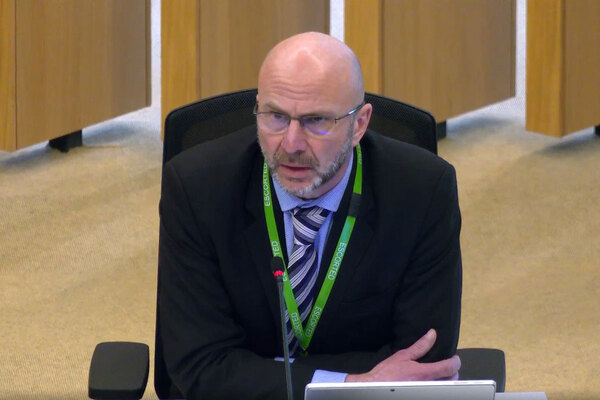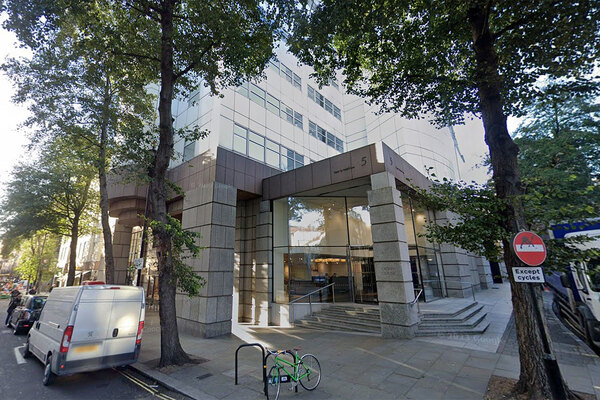You are viewing 1 of your 1 free articles
NAO: Universal Credit has not delivered value for money
Universal Credit has not delivered value for money and it is uncertain if it ever will, the National Audit Office (NAO) has concluded.
The Department for Work and Pensions (DWP) has estimated it can make an annual net saving of £8bn, but in a critical report published today the NAO said this “remains unproven”.
The DWP has spent £1.9bn to date on the roll-out of the new welfare system, which replaces six means-tested benefits. This £1.9bn spend is made up of £1.3bn of investment and £0.6bn on running costs, the NAO said.
Universal Credit was introduced with the aim of encouraging more people into work, reduce fraud and error, and reduce the cost of administering benefits. The DWP started work on Universal Credit in 2010 with an original completion date of October 2017, but this has now slipped to March 2023 because of early issues with the roll-out.
The NAO said the DWP now has a “better grip” of the programme in many areas, but said it cannot judge the value for money it delivers on the current state of the programme alone.
The report added: “Both we, and the department, doubt it will ever be possible for the department to measure whether the economic goal of increasing employment has been achieved.
“This, the extended timescales and the cost of running Universal Credit compared to the benefits it replaces cause us to conclude that the project is not value for money now, and that its future value for money is unproven.”
The NAO has “significant doubts” about the DWP’s expected savings. Universal Credit currently costs £699 per claim, which is four times as much as the DWP intends for it to cost when the systems are fully developed, the report said.
Local and national bodies, as well as claimants, showed the NAO evidence of people suffering hardship during the roll-out of the full Universal Credit service.
The report said: “These have resulted from a combination of issues with the design of Universal Credit and its implementation. The department has found it difficult to identify and track those who it deems vulnerable. It has not measured how many Universal Credit claimants are having difficulties because it does not have systematic means of gathering intelligence from delivery partners.”
The report added: “The department does not accept that Universal Credit has caused hardship among claimants, because it makes advances available, and it said that if claimants take up these opportunities hardship should not occur.
“However in its survey of full service claimants, published in June 2018, the department found that four in 10 claimants that were surveyed were experiencing financial difficulties.”
Despite its criticisms the NAO said it would be “complex and expensive” to revert back to the old benefits system at this stage.
The DWP can now run a basic system for Universal Credit, the report said, but many processes are “still manual and inefficient”. The department “significantly overestimated” the number of claimants that would be able to confirm their identity online, with only 38% successfully doing so compared with the department’s expected 90%.
The report said that while it recognises the “determination and single-mindedness” with which the DWP has “driven the programme forward to date, through many problems” local and national organisations have raised issues and the department does not accept that Universal Credit causes hardship among claimants “because it makes advances available, and believes that if claimants take up these opportunities hardship should not occur”.
“This has led it to often dismiss evidence of claimants’ difficulties and hardship instead of working with these bodies to establish an evidence base for what is actually happening. The result has been a dialogue of claim and counter-claim and gives the unhelpful impression of a department that is unsympathetic to claimants,” the report added.
David Orr, chief executive of the National Housing Federation, said: “This report confirms what housing associations know, that Universal Credit is causing increased financial hardship for some tenants, and higher rent arrears for housing associations.
“There are serious problems with the system’s design and implementation. People need better support to make claims and should not be left without enough money to live on. It is unhelpful that the government reduces 40% from people’s benefits to pay back a loan given to them to survive the month long gap before they receive their first payment.”
A DWP spokesperson said: “Previous administrations poured billions into an outdated system with a complex myriad of benefits, which locked some people into cycles of welfare dependency. Whereas we are building a benefit system fit for the 21st century, providing flexible, person-centred support, with evidence showing Universal Credit claimants getting into work faster and staying in work longer.
“Universal Credit is good value for money and is forecast to realise a return on investment of £34bn over ten years against a cost of £2bn, with 200,000 more people in work. Furthermore 83% of claimants are satisfied with the service and the majority agree that it ‘financially motivates’ them to work.”










